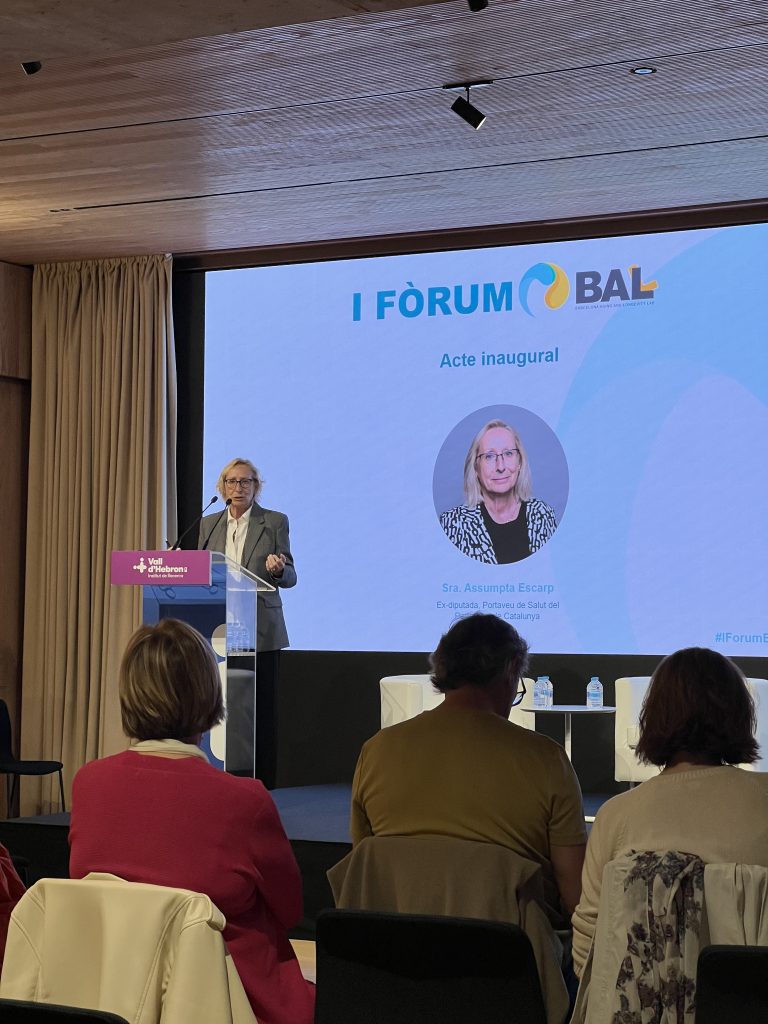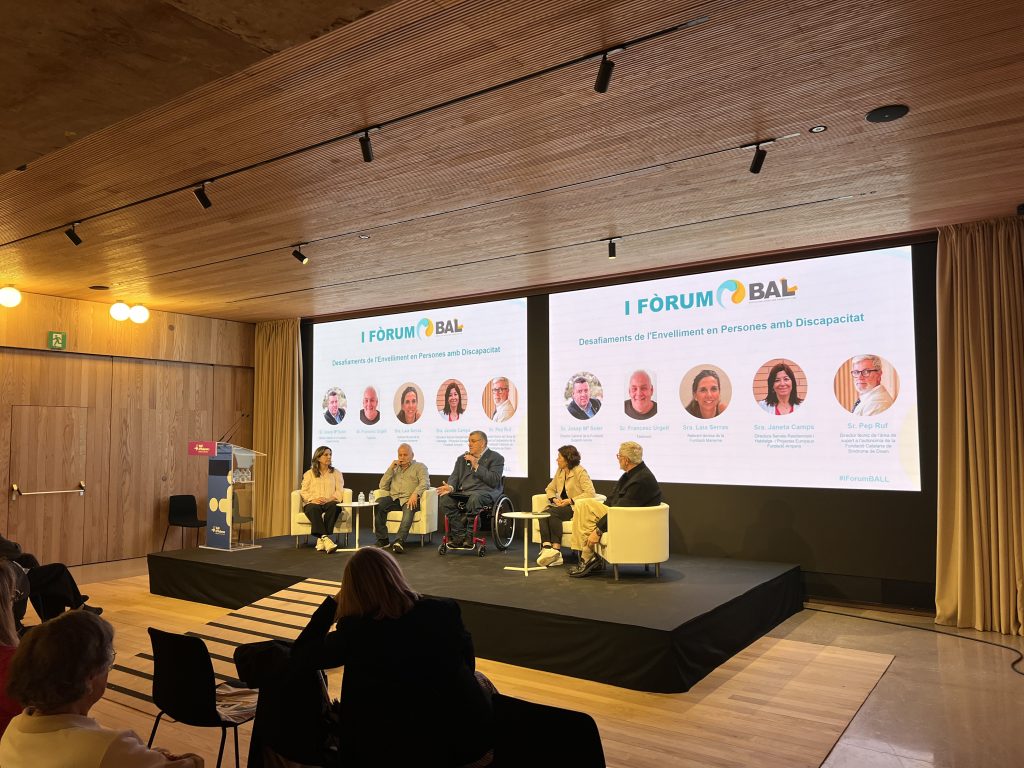On May 6, older adults, care professionals, researchers, and institutional representatives gathered at the 1st Forum of the Barcelona Aging & Longevity Lab (BALL) to share ideas, challenges, and solutions related to active and dignified ageing.
The event, held at the Auditorium of the Vall d’Hebron Research Institute (VHIR), positioned older people as true protagonists, giving them a space to share their experiences and visions for the future.

A Space to Share Challenges and Opportunities
The opening session featured leading voices such as Dr. Anna Santamaria, Director of Internal Strategy at VHIR, who highlighted the need for more open, participatory science closely connected to the realities of older people. She emphasised the centre’s commitment to creating inclusive research spaces.
Next, Dr. Marco Inzitari, CEO of Parc Sanitari Pere Virgili, delivered a powerful message that set the tone for the day: an optimistic, courageous, and creative perspective on ageing as an opportunity for innovation, collaboration, and social transformation.
Assumpta Escarp, former MP and spokesperson for Health in the Catalan Parliament, reminded the audience that longevity must be a central pillar in political, economic, and scientific agendas. She stressed the need to empower older adults, acknowledge their rights, and guarantee access to housing as a foundation of dignity.
Carlota Zabaco, BALL’s Executive Coordinator, opened the event by welcoming attendees and reinforcing the importance of building this space collectively.
Rethinking Housing for Older Adults: A Round Table to Broaden Perspectives
As part of the Forum, the round table titled “The Future of Senior Housing: Options and Challenges” sparked a rich conversation on how to adapt housing models to the preferences and needs of older people.
Moderated by Anna Fornt, General Director of Grup Efebé, the session focused on key questions for the sector:
Where do we want to age? How do we want to do it? And what role does housing play in promoting autonomy and well-being?
Three distinct voices contributed complementary insights:
-
Francesc Xavier Soley, Director of the Ramon Berenguer Care Home, advocated for a more flexible care model that can respond to the diverse profiles of residents.
-
Mercè Mas, member of the Barcelona Seniors Council and FATEC, stressed the importance of listening to older adults when designing the places where they will live:
“Decision-making is also part of dignity.” -
Carles Donat, Co-Director of the Barcelona Metropolitan Housing Observatory, shared data and context on the current housing landscape and opened the discussion on alternative models like cohousing and housing with services.
The conversation made it clear: housing is not just a physical space — it is a fundamental right linked to quality of life, freedom, and social participation.
A reflection that aligns perfectly with Efebé’s mission: designing environments that accompany people throughout every stage of life.

A Day to Build Collective Responses to Ageing
Throughout the morning, the Forum welcomed diverse voices from the sector to explore key societal challenges linked to longevity — from senior participation in research to unwanted loneliness and the future of care professions.
Ethical and Inclusive Research
The first round table, focused on inclusive and responsible research, highlighted the importance of involving older people as active participants in innovation projects.
Moderated by social psychologist Lluís Jordi Farré, the panel featured voices like Dr. Simón Schwartz, Dr. Montserrat Esquerda, and Sara Mas from VHIR.
They all shared a common message:
Science must listen to and include those who experience ageing firsthand.
Building Communities to Fight Loneliness
The second session tackled one of today’s most pressing issues: unwanted loneliness.
Moderated by Pilar Rodríguez (ABD Group and iSocial Foundation), the discussion showcased inspiring initiatives like Vincles Alt Pirineu-Aran and Suara Cooperativa’s Online Community Centre, which are working to strengthen social networks and prevent isolation among older adults.
A highly relevant topic for care homes and home support services, which must adapt to new emotional and social realities.
Advocating for Care and Caregivers
The final round table, titled “Caring for the Carers”, focused on the professionals who support older adults on a daily basis.
Moderated by Oriol Fuertes (Qida) and featuring contributions from Paloma Amil, Ester Giró, and Mònica Capella, the discussion addressed the future of the care profession, the need for greater societal recognition, and the stereotypes that still affect the sector.
An essential conversation to ensure quality care and the sustainability of the support model.
Closing Remarks: A Commitment to the Future
The Forum closed with remarks from Marta Villanueva, Barcelona City Councillor for Health, Disability and the Loneliness Strategy, who highlighted the importance of collaboration between institutions, professionals, and civil society to build a more age-friendly city.
The 1st BALL Forum concluded with a clear message: Only through dialogue, innovation, and real participation can we transform the future of ageing — a future that concerns us all.
At Grup Efebé, we reaffirm our commitment to designing spaces and services that place older adults at the centre. We will continue to support collaborative initiatives that enhance quality of life, participation, and dignity at every stage of life.







